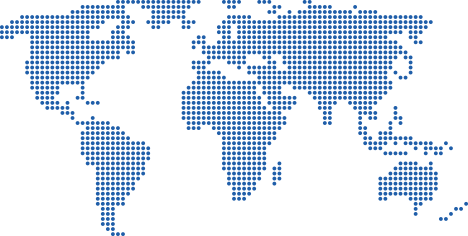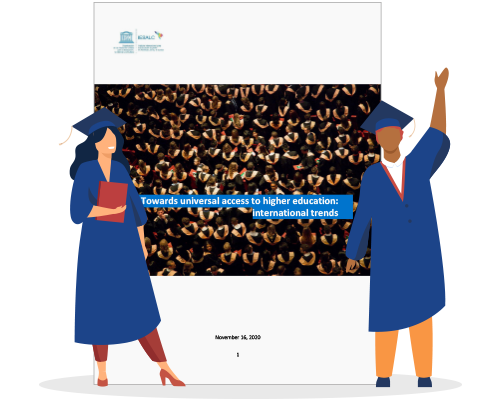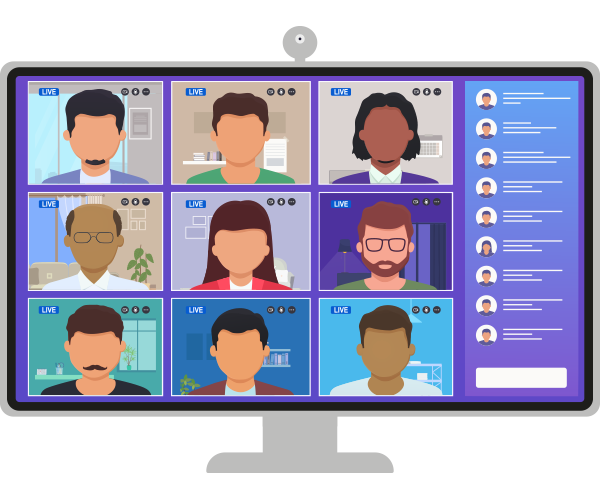Annual Report 2020
UNESCO IESALC

Introduction

Following instructions from the United Nations Resident Coordinator (UNRC) in Venezuela, the UNESCO International Institute for Higher Education in Latin America and the Caribbean closed its doors on March 13, 2020, and all staff were asked to telework since then. This situation is still ongoing, and there is no indication from the UNRC as to when the offices will be reopened and regular presence will be allowed in the offices.
In addition to the issues that telework raised in the internal management of the Institute, it soon became apparent that the Institute’s activities should give priority to analyzing the impact of the pandemic on the higher education sector, the risks it faced and the most appropriate responses at the international, national and institutional levels. What was thought to be a situation that would last only a few weeks, and then a few months, with limited impact on the Institute’s work program for the biennium, is very likely to raise a fundamental question concerning its continuity.
The following is a brief overview of the activities carried out by IESALC in response to the challenges posed by the pandemic to higher education and to the work program approved for the current biennium.
IESALC’s response
to the pandemic
Policy analysis and research
Given the top priority given by UNESCO’s Education Sector to the educational consequences of the pandemic following the closure of schools and institutions of higher education, the Institute reacted by engineering major efforts in the following areas: policy analysis and research, capacity development, technical assistance and advocacy.
The activities carried out to date in each of these areas are briefly presented below. Most of them correspond to a redefinition of the objectives already established for the 2020 – 2021 biennium.
In anticipation of the closure of higher education institutions, we started providing advice with a set of specific recommendations as early as March 8, which can be found at the following link:


Also in March, in view of the increasing need, we reacted by creating a space on our website with resources on COVID-19 and higher education:
The space provides details on how governments, higher education networks and institutions are addressing the challenges of COVID-19:
In April, we launched a global report entitled COVID-19 and Higher Education: Today and Tomorrow. Impact analysis, policy responses and recommendations. This report highlights the impacts as well as the institutional and governmental responses to COVID-19 in the higher education sector. It also expands on the first actionable recommendations within the framework of the principles advocated by UNESCO, among which is the defense of the right to education.
The report was launched on April 7 in Spanish, and in the English version on April 19, 2020. It was sent directly to the Ministries of Education and/or Higher Education in our Region and to other stakeholders in global higher education.


The success of this report prompted the IESALC team to update it, this time focusing more on the exit strategy and providing an initial framework for the reopening and day-after. The report, with a foreword by ADG/ED, Stefania Giannini, was released on May 13, 2020, in both English and Spanish, and can be downloaded here:
In cooperation with the Science Sector of UNESCO and the Organization of Ibero-American States, IESALC published on December 10 a major report on the impact of the pandemic on research and innovation:


In cooperation with the Inter-American Development Bank and APICE, we have prepared a report on the impact of the pandemic on financial aid to higher education students in the region.
We have launched a survey on learning strategies during the pandemic. With the resulting data, we released a brief report on December 17:


In addition, we have created a dedicated web space for university professors and students to share their own experiences with online learning:
With the support of Microsoft, a major effort has started in the area of Artificial Intelligence in higher education, and the initial results, apart from two webinars, will be published in 2021.


On December 17, we officially launched a report providing an initial overview of some trends in universal access to higher education, including drivers and barriers.
Capacity building

We launched a virtual campus dedicated entirely to providing capacity building for university instructors, administrators and students in maximizing the use of technology to promote pedagogical continuity: it includes a variety of training courses and seminars.
IESALC has provided support to the UNESCO Office in Yaoundé (Cameroon) in the recruitment process of the Rector, several senior managers and professors at the African American University of Central Africa, located in Equatorial Guinea. The process is ongoing and will result in a joint staff training effort:
- Review and suggestions for changes to the University Bylaws.
- Outline of new organizational architecture.
- Profiles of 8 teaching positions and the conduct of the respective selection process at the international level.


Technical assistance

With funding from the Peruvian government (PMESUT), we are providing direct technical assistance to 13 public universities to ensure educational continuity for vulnerable students from all over the country. More details here:




With funding from the Colombian government, IESALC contributed to a major effort to revise the quality assurance policy for higher education.
A series of webinars, with the participation of representatives from 10 major quality assurance agencies and international networks (including the International Network, the European Network, RIACES, SIACES, and agencies from Argentina, Australia, Canada, the United Kingdom, Spain and South Korea). The resulting report, which is now being validated by the participating agencies, will be published in 2021.

Promotion and dissemination


We have redoubled our efforts to ensure that the Institute’s Journal Educación Superior y Sociedad (Higher Education and Society), is recognized by SCOPUS and other international reference databases. The Journal has reached its 30th anniversary this year.
During 2020 we published volume 32, with two issues. The first issue is dedicated to an analysis of some dimensions of the social transformations in Latin America and the scenario of commitments and challenges for higher education in this context. The second issue which is thematic, is dedicated entirely to the contribution of higher education to the Sustainable Development Goals. It includes 16 articles by 33 researchers from approximately 18 universities located in 8 countries in the region and
is now available on the Journal’s website.
Both issues can be downloaded here:
The next volume will have two issues. For the first issue, the magazine will be ‘dressed up’ in celebration of its thirtieth anniversary and will analyze three decades of higher education research in Latin America and the Caribbean. The second issue will have a general section for articles examining various topics resulting from research processes in higher education and a thematic dossier, dedicated to the challenges of higher education in the face of the COVID-19 pandemic in Latin America and the Caribbean.
We have either co-organized or participated in seventy-four (74) webinars to disseminate our reports on the impact of the pandemic on higher education and we will continue to do so.


We have contributed chapters dedicated to the effects of the pandemic on higher education in two book publications

Sponsored by the Carolina Foundation, we published a report
on the effects and impacts on higher education from
a policy perspective. It can be downloaded here:
Credits
GOVERNING BOARD
Chairman
Andrew Augustine
Vice President:
Rutilia Calderón Padilla
Board Members:
Francis Arguinzones Lugo
Aldo Bona
Olda Cano de Arauz
Paulo Falcón
Dixton Findlay
Alfonso Fuentes Soria
Altagracia López Ferreiras
TEAM
Director
Francesc Pedró
Program and analysis team:
Pablo Céspedes
Eglis Chacon
Christian Escobar
Yuma Inzolia
Bosen Liu
Diana Morales
Takudzwa Mutize
José Antonio Quinteiro
Débora Ramos
Jaime Roser
Emma Sabzalieva
Daniele Vieira
Clarisa Yerovi
Administration and services team:
Edward Betancourt
Zulay Gómez
Edreis Jaspe
Antonio Losapio
Sara Maneiro
Neus Pasamonte
Yeritza Rodríguez

